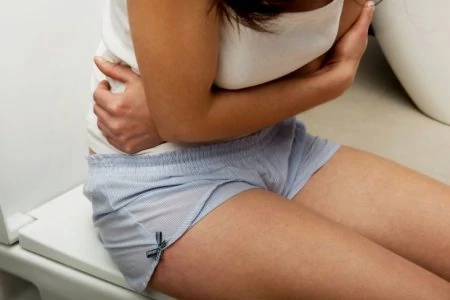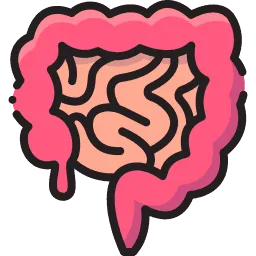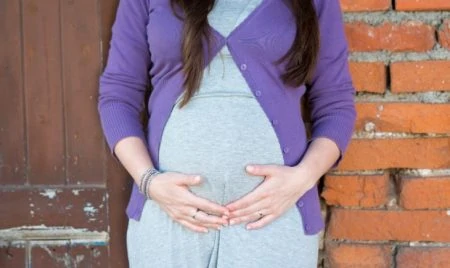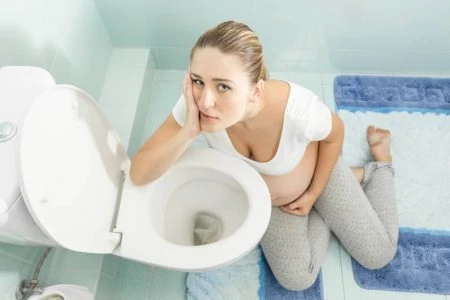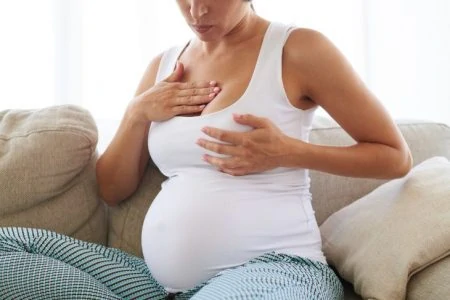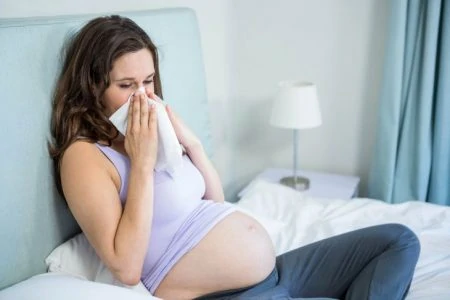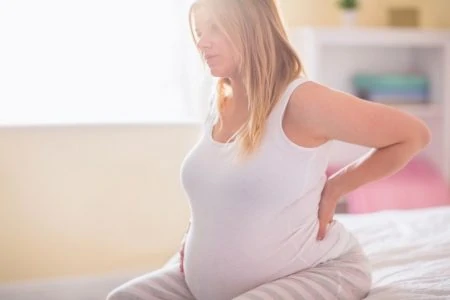Every part of your body is affected by pregnancy, and your digestive system is no exception. In fact, a relatively common pregnancy complaint is green poop.
If you’re experiencing green poop or have other toilet-related pregnancy questions, read on.
We’ve got everything you need to know but are too mortified to ask.
Key Takeaways
- Green poop is relatively common during pregnancy, but it can be caused by a variety of factors.
- Your digestive system is affected by pregnancy hormones, including progesterone which can slow down digestion and cause constipation or diarrhea.
- Healthy pregnant poop looks similar to non-pregnant poop, but changes in hormones can make it vary in color.
- Green poop may be caused by eating foods high in chlorophyll, taking certain supplements, or using certain medications.
- If the green poop is accompanied by other symptoms, it’s important to consult your doctor.
Understanding Your Poop
Before we can launch into an explanation about why your poop might be green, we first need to give you a quick science lesson. Stay with us here; we promise it’s brief.
How Does Pregnancy Affect My Digestion?
Pregnancy can significantly alter your digestive processes, primarily due to the hormone progesterone (2). Progesterone causes your system to slow, resulting in a longer transit time and making it more difficult for your body to absorb nutrients from food.
This can result in constipation for some women as more water is removed from the waste as it travels through your system. However, for some women, this hormonal shift can result in diarrhea.
Toward the end of your pregnancy, you may experience diarrhea shortly before labor. This is due to the hormonal shifts your body experiences as it gears up for delivery. While it may not be an early sign of labor, it is a symptom that mothers commonly experience toward the end of their pregnancy (3).
What Should Poop Look Like When I’m Pregnant?
Collectively, healthy pregnant poop looks the same as non-pregnant poop, but individually, you may notice a difference, thanks to changes in your hormones.
Take Note
Your poop should be soft enough that it does not hurt when passing but cohesive enough that it stays together in the toilet.
What Can Cause My Poop to Turn Green?
Many things can affect the color of your stool.
1. Foods
Many fruits and vegetables will cause temporary changes to the color of your poop. Most notable are green-colored veggies, as the chlorophyll can get into your poop and cause it to turn green, too.
An overabundance of veggies can cause your stool to turn green for other reasons as well. Fruits and vegetables are a good source of dietary fiber, which is necessary to help with intestinal transit.
However, your body cannot digest this fiber, so it will come out the other end virtually unchanged. This can affect your stool color — not because of the chlorophyll but because of the undigested green food that makes up part of your poop.
Take A Breath And Keep Calm
2. Synthetic Food Dyes
Am I the only person who has gone to a kid’s birthday party, had a cupcake with neon blue icing, and then nearly had a heart attack the next day when using the bathroom?
Food dye can have a shocking effect on your stool color. However, the good news is that it’s very short-lived.
If you notice green poop and it’s a one-time event, try to think about what you’ve eaten over the past day or two. Even brightly colored cereals or drink mixes can have a psychedelic effect on your waste. Chances are, you’ll be able to chalk it up to food choices.
3. Iron Supplements
If you’re pregnant, you’re probably taking a prenatal vitamin. Some women are also encouraged by their doctor to take a separate iron supplement. Iron is famous for tinting your poop green, and it’s completely normal.
Your body will take what it needs, eliminate what it doesn’t, and the result? Green poop.
Never take additional iron while pregnant without consulting your doctor, and if you’re concerned about greenish stools while taking the supplements, mention it to them. Nothing will shock your OB/GYN — they’ve seen and heard it all.
4. Antibiotics
While incredibly helpful at killing harmful bacteria and healing infections, antibiotics are also exceptionally good at killing healthy gut bacteria. This means that while you’re taking a course of antibiotics, your digestive health might take a temporary dive, and all the changes can result in green poop.
If you’re experiencing green stool because of antibiotics, take a probiotic a few hours after your daily dose or after you finish your treatment. It can help get your innards back in proper working order.
5. Short Transit Time
Short transit time is commonly associated with diarrhea, but this is not always the case. You may just have looser-than-you’re-used-to stools — primarily because with a shorter transit time, there is more water content remaining in your poop since it wasn’t in your colon long enough to be absorbed.
Your poop may appear green when this happens because the bile didn’t have enough time to chemically react with the other things in the intestines and turn brown.
Loose stools with a short transit time are common in early pregnancy, toward the end of pregnancy, and any time you may experience stress or anxiety.
It’s Usually Normal
6. Hydration
We get it. You’re already running to the bathroom every 20 minutes to urinate since your baby is sitting on your bladder, so it can be hard to drum up the motivation to drink as much water as you should while you’re pregnant.
However, dehydration during pregnancy can have serious health implications and less-serious but bothersome side effects.
Should I Be Concerned About My Weird Poop?
While strange-looking poop can be shocking during your pregnancy, there are very few reasons it should concern you. Certain types of stool can be a symptom of a more serious underlying issue, but those conditions will almost always have other accompanying symptoms like severe abdominal pain or blood in the stool.
You should contact your doctor if you experience any of the following in conjunction with green poop:
1. Ongoing Loose Stools or Diarrhea
Contact your doctor if your loose stools persist for more than two to three days. Dehydration can be severe, especially when you’re pregnant. Your doctor can help determine whether your diarrhea is due to another treatable health condition or just a virus that needs to run its course.
Regardless, make sure you drink plenty of water to try and stay hydrated.
2. Bloody Stools
Though bloody stools sound scary, they’re common during pregnancy, thanks to hemorrhoids. However, if you have lots of bright red blood in your stool, loose poop that looks like it has coffee grounds in it, or your bloody poop persists for several days, contact your doctor.
The brighter red the stool, the closer the bleed is to the exit! If you have bright red bleeding, it’s usually due to hemorrhoids. If your stool is black and looks like coffee grounds, the bleeding is higher up in your GI tract. Notify your primary care provider because coffee-ground-type stool is a worrisome side effect.
Editor's Note:
Caitlin Goodwin, MSN, RN, CNM3. Severe Abdominal Cramping
Severe abdominal cramping during pregnancy is never normal. If you experience this, it could result from food poisoning or a more serious health condition.
Be On The Lookout
Though open discussions about bathroom-related issues seem to be taboo, rest assured, they are welcomed in your doctor’s office. Your doctor has your health as their top priority, and if you’re experiencing even the smallest of symptoms, it’s helpful for them to know about it.
It’s also helpful for you when they reassure you that some of the “strange” things you’ve been experiencing are normal. So gather your courage and start that uncomfortable conversation.
The Bottom Line
Poop has gotten a lot of press lately about being a window into one’s health. And while that’s generally true, it has also caused a lot of people unnecessary worry because “normal” has a lot of variation.
Throw in pregnancy — and the never-ending worries about potential health complications — and you’ve got a recipe for a good freak-out. Once you have your baby, you’ll be talking about their poop all the time, so you might as well get used to it now.
